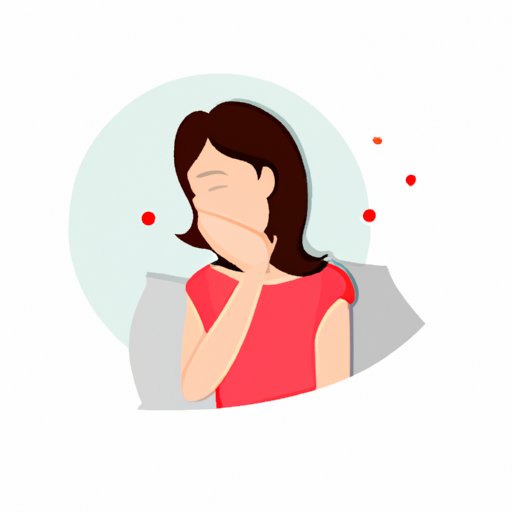
Introduction
Sleep plays a critical role in our overall wellbeing. It’s a time when our bodies rest, repair, and recharge, preparing us for the day ahead. Adults need at least seven to eight hours of restful sleep per night. However, sleep is often overlooked in our fast-paced society. The World Sleep Day Report found that over 45% of the global population struggles with sleep deprivation, leading to many problems, including illness and disease.
The Risk of Sleep Deprivation: Can Lack of Sleep Make You Ill?
Sleep deprivation occurs when an individual doesn’t get adequate restful sleep. It can range from missing out on one night’s sleep to chronic sleep loss. Anyone can be at risk of sleep deprivation, although the elderly and young adults are more likely to experience it. Common symptoms include irritability, forgetfulness, anxiety, daytime fatigue, and reduced cognitive function. These symptoms can affect one’s personal and professional life.
Chronic sleep deprivation can lead to many health issues, including high blood pressure, heart disease, and obesity. Moreover, long-term insomnia or sleeplessness can lead to mental health issues, including depression, mood disorders, and psychiatric disorders.
The Connection between Sleep and Health: How Not Getting Enough Can Impact Your Immune System
Sleep plays a crucial role in maintaining our immune system. During sleep, our immune system releases cytokines, proteins that help us fight infection, inflammation, and stress. Cytokines play a vital role in growth, development, and healing.
Research shows that not getting enough sleep can reduce the production of these cytokines, leading to a weaker immune system. One study found that individuals who slept less than six hours had a 70% higher chance of contracting a cold than those who received seven to nine hours of sleep. Another study found that individuals who slept less than five hours had a higher risk of developing pneumonia and other respiratory infections than those who slept for seven hours or more.
Sleep Your Way to Better Health: The Link Between Sleep and Fighting Off Infections
Adequate sleep has shown to strengthen the immune system by producing antibodies, proteins that help fight off infectious agents. Antibodies are produced during sleep, particularly during rapid eye movement (REM) sleep, the most restorative part of the sleep cycle.
Sleep also enables T-cells, immune cells critical in the fight against viral infections, to mature and function effectively. T-cells also play a vital role in cancer prevention.
One crucial example of the benefits of sleep is the link between poor sleep and increased risk for cancer. Cancer cells need angiogenesis, or new blood vessel growth, to help them grow and spread through the body. Lack of sleep can lead to an increase in angiogenesis-promoting factors which can lead to cancerous tumor growth.
Can’t Sleep, Will Get Sick: What Happens to Your Body When You Don’t Rest Enough
Chronic sleep deprivation can have profound impacts on our bodies. From cardiovascular health to metabolism and brain function, lack of sleep can harm almost every organ system.
Sleep deprivation can raise the risk of high blood pressure, arrhythmia, stroke, heart disease, and heart failure. Studies have also shown that sleep deprivation affects glucose metabolism, leading to an increased risk of developing Type 2 diabetes. Poor sleep can even lead to gastrointestinal disorders and autoimmune disorders.
Furthermore, lack of sleep disrupts cognitive function, including alertness, concentration, and decision-making. It can lead to forgetfulness and memory loss in the long term.
Sleep or Be Sick: The Dangers of Overlooking Sleep on Your Overall Health
Prioritizing sleep is essential for good health and overall wellbeing. It provides the necessary time for our bodies to rest, recharge and repair.
Individuals who get optimal sleep are more alert, have better memory function, and are less prone to accidents. Lack of quality sleep can lead to increased risk of developing chronic conditions such as heart disease, high blood pressure, and diabetes.
Practical tips for getting better sleep include establishing a regular sleep schedule, relaxing before bedtime, limiting exposure to technology, and avoiding caffeine and alcohol before bed. Practicing good sleep hygiene creates an environment that is conducive to restful sleep.
Sleep Deprivation and Your Immune System: What You Need to Know to Stay Healthy
Getting the recommended amount of sleep is crucial for maintaining overall health and preserving the immune system. Lack of sleep can lead to many health issues, including chronic diseases and infections. It is essential to prioritize a healthy sleep routine that works for you.
Attempting to establish a sleep routine can be difficult, but it can make a significant difference in one’s overall health and wellbeing. One can speak to a healthcare provider for advice on overcoming sleep issues. By prioritizing sleep, individuals can help their bodies combat infection-promoting cytokines and subsequently improve the immune system, mood, and cognitive function.
Conclusion
Sleep is a fundamental component of good health. Adequate sleep helps our bodies maintain the immune system, heal and recharge, strengthen cognitive function, and reduce the risk of chronic diseases. On the other hand, sleep deprivation has been linked to many health issues, including infections, heart disease, diabetes, and mental health disorders.
Make sleep a priority for optimal health. Focus on good sleep hygiene and establish a regular sleep routine. By getting sufficient quality sleep, you’ll be helping your body fight infections, reduce inflammation, and prevent chronic diseases, leading to a healthier life.




